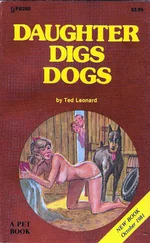“There he is,” she said. “Large as life—and I don’t mean afterlife.”
“Oh my God,” I murmured as Jasper Taxman fastened the hood on his duffel coat.
26.
“Don’t try to skate around it,” Mr. Wetherhead said heatedly as Mr. Taxman listened calmly to our accusations. “I’d know the shape of that coat anywhere. It’s exactly like Paddington Bear’s.”
“Sorry, darling, but the hood’s quite unmistakable,” Miranda added.
“You burgled our home?” said Lilian wonderingly.
“I don’t understand,” said the vicar. “Why would you, of all people, steal the Gladwell pamphlet?”
Mr. Taxman shouldered his crowbar and peered up at the sky. The rain splashed the lenses of his brown-rimmed glasses and trickled down his impassive face like falling tears. “Come in,” he said, nodding toward the door of the Emporium.
The jangling sleigh bells gave our arrival a deceptive air of normalcy. Heads turned as we entered the shop, and at least one conversation trailed into silence. Sally Pyne left off chatting with Mr. Barlow, and Emma looked up from scratching Buster’s ears, but I scarcely noticed them. I couldn’t take my eyes off Peggy Kitchen.
The vicar had described her as subdued, but to me she seemed virtually extinguished. Her madly glittering eyes were dull, her skin was gray with weariness, and she climbed clumsily from her stool behind the cash register, like an elderly woman uncertain of her strength. I looked uneasily at Jasper Taxman. Had he done this to her? Did she know of his betrayal?
She took in our varied expressions and said to Mr. Taxman, “Is something wrong, Jasper?”
“Yes,” he replied, with his usual economy of words. He brushed his palms together, then placed them firmly on the countertop and faced Peggy Kitchen. “I stole the Gladwell pamphlet,” he said quietly. “I am the burglar.”
No one moved. No one spoke. No one seemed to know how to react to such a preposterous declaration. It was as if the vicar had announced, quite casually, that he was the Messiah. Peggy leaned in to peer intently at Mr. Taxman, as though trying to read his lips, and Buster ran to cower between Mr. Barlow’s legs, but the rest of us simply stood and stared.
Mr. Taxman turned to face us. “Leave your coats and umbrellas on the counter. I don’t want Mrs. Kitchen’s stock to suffer water damage.” He reached for Peggy Kitchen’s hand, led her out from behind the counter, and drew her through the small brown door that led to Xanadu.
“Is he serious?” Emma murmured, coming to my side. “Did he really take the pamphlet?”
“Stick around,” I told her. “I’ll let you know as soon as I find out.”
I trailed behind the others as they entered the back room, but I paused just inside the doorway, feeling like a thief in King Tut’s tomb. The back room stretched before me, row upon row of gray metal shelves reaching to the ceiling, dimly lit by dangling bulbs, and burdened with wealth hitherto unimagined.
There were rake handles, broom handles, mop handles, ax handles, buckets and pulleys and trowels. There were belt buckles, shoelaces, sunglasses, candlesticks, flea collars, diapers, and hats. Some shelves were filled with shoe boxes, others with aluminum teapots, all were crammed until they should have bent or broken. There were coils of rope, bags of peat moss, bolts of fabric, tins of paraffin—there was even a ship in a bottle.
The main aisle was so narrow that Peggy had to negotiate it sideways, the floor so crowded that Mr. Wetherhead had to hunt for spaces in which to plant his cane. Xanadu was magnificent, a hoard beyond description.
I heard a collective gasp ahead of me and hurried to catch up with the others. I dodged protruding butterfly nets, ducked under fishing poles, pushed aside the dangling arms of a Day-Glo slicker, and stopped short, dazzled by an incongruous, incredible sight.
I’d reached the back of the room, an open space as neat and tidy as a dentist’s office. Lilian and the vicar stood to one side, Miranda and Mr. Wetherhead to the other, peering curiously at a six-foot-tall hand-operated printing press that must have weighed close to a thousand pounds. It was made of cast iron, with gracefully curved claw-footed legs and a walnut-clad lever above the tympan. The yoke’s decorative scrollwork bore traces of gilt paint.
“It’s an Albion!” I exclaimed. “Is it Cornelius Gladwell’s?”
Jasper Taxman finished seating Peggy in a worn swivel chair and turned an inquiring eye in my direction.
“I know a man who owns one,” I explained. “My old boss curates the rare book collection at my alma mater. He’s got an Albion in his basement. How many fonts do you have?”
“One,” said Mr. Taxman. “The gentleman who acquired the press sold the others. He saw no need to have more than one.”
A type case rested on a workbench along the rear wall, a honeycomb of squared-off recesses filled with Caslon upper- and lowercase type, punctuation marks, and furniture for spacing. Beside it, on the bench’s level surface, lay a pair of galleys, a composing stick, a wood-handled bodkin, tubes of black ink, and reams of harvest-gold paper. An ink-stained apron hung from the Albion’s walnut-clad cast-iron lever.
Mr. Taxman fetched a folding chair for Mr. Wetherhead, then took up a position between Peggy and the Albion. The rest of us gathered in a half circle around him. As we shuffled into our impromptu formation, I heard the faint click of a door latch and the telltale tapping of Buster’s claws on the floorboards. We would soon have company, I thought.
“Yes, Ms. Shepherd,” Jasper Taxman began, in answer to my question, “Mr. Harmer’s father purchased the Albion from the estate of the Reverend Cornelius Gladwell. He used it to print advertisements for his auctions. Mr. Harmer showed me how to use it when I first came to Finch.”
“You were always in the shop,” Peggy said faintly.
Mr. Taxman looked down at her upturned face. “I wanted to be where you were,” he said. “Since you and your mother were billeted with Mr. Harmer, I volunteered to work at his shop.”
“Billeted?” inquired the vicar.
“Finch provided sanctuary for a number of evacuees during the war,” Mr. Taxman explained. “Mrs. Kitchen and her mother came from Birmingham, Mr. Barlow and I came from Bristol, and—”
“And I was sent all the way up here from Plymouth.” Sally Pyne emerged from the shadowy aisle, with Mr. Barlow and Buster at her heels. “We were evacuated during the blitz, Vicar.”
Mr. Taxman didn’t flinch at the intrusion. He simply motioned for the newcomers to join the circle. He must have known that it was pointless to exclude them. Whether Mr. Taxman liked it or not, what was said in the back room would soon be broadcast to the farthest reaches of Finch.
Mr. Barlow spoke up. “You used to be back here all the time, Jasper, poking around Mr. Harmer’s shelves. I used to think you were wheedling extra rations.”
Sally snorted. “I could’ve told you he was sweet on Peggy. Trotted after her like a lapdog—like Buster follows you.”
The acerbic comment didn’t fluster Mr. Taxman. “I spent most of my waking hours back here,” he agreed smoothly. “It wasn’t as well stocked then as it is now.”
“ There was a war on,” Mr. Barlow reminded him.
Mr. Taxman nodded. “As you say, Bill, it was wartime and most of the shelves were bare. Had it been otherwise, I might have overlooked the box of papers Mr. Harmer’s father acquired when he purchased the Albion.”
We watched with an air of expectancy, like children at a magic show, as Mr. Taxman opened the doors of a cupboard beneath the workbench and withdrew from it a wooden box the size of a picnic hamper. He placed the box atop the workbench and lifted the hinged lid. When he turned to face us, he was holding a slim pamphlet bound in buff-colored wrappers.
Читать дальше








